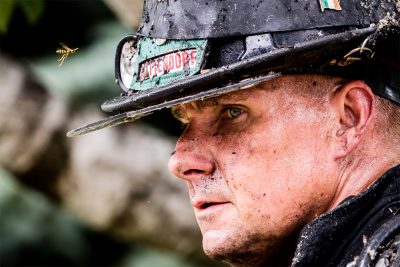Get the help you need right now 855-900-8437 Get Help Now
Get the help you need right now 855-900-8437 Get Help Now
August 14, 2018
Your job as a fire fighter is full of stressful and traumatic events that can build up if these incidents aren’t addressed and talked about. Reports of post-traumatic stress disorder (PTSD) have been on the rise in recent years. More awareness about the disorder has led to this issue finally being reported, recognized and treated properly.
Peer support groups in fire departments across the United States have been organized to help fire fighters cope with the stresses and traumas they encounter on a daily basis. With all the awareness and newly organized support groups, why aren’t more fire fighters seeking help for PTSD or other behavioral health problems?
For decades, behavioral health wasn’t viewed as critical or important as a fire fighter’s physical health or fitness for duty. Recently however, PTSD and related mental health disorders are finally commanding the same awareness as other major health problems in the fire service, such as cancer, heart disease and physical injury, which have traditionally dominated the conversation. PTSD is finally being recognized as an accumulation of the effects of exposure to repeated trauma. It’s the accumulation that builds up over time.
Research shows that fire fighters who seek out professional help and discuss their job with loved ones and support groups have a better chance at overcoming PTSD. If this is the case then why aren’t more seeking treatment?
Fire fighters avoid seeking help for a variety of reasons, one being the stigma attached to seeking mental health treatment.
A recent report found that 58 percent of 483 fire fighters “reported stigma-related barriers to care.” The most frequently cited stigma-related barriers were concerns about being treated differently by their peers, appearing weak, harming their reputation, being thought less of by others, embarrassment and being blamed. This study shows that the fear fire service members have of seeking mental health treatment services is a factor in the high suicide rate of fire fighters. The stigma against admitting the need for mental health treatment in the fire service is a combination of a self and cultural stigma.

Stigma is created by an individual because they are afraid that someone will label or judge them if they ask for help. This creates fear in them, even if they do not know whether that cultural stigma exists. The individual is too scared to ask for help. When this occurs, a fire fighter may not even know what mental health services are available to them for help. This type of stigma may lead a fire fighter to try to cope with the issue through other methods, possibly involving excessive alcohol consumption or substance misuse.
The cultural stigma can derive from a fire fighter’s shift, station, or department. It’s important to realize that every member of the shift, station, or department does not have to share in the continuation of the stigma: It is only upheld by those who voice their opinions the loudest.
In addition to the stigma, fire fighters also may not get help because mistrust of treatment providers, lack of culturally sensitive clinicians who understand the fire service, the perception that treatment doesn’t help or a simple lack of awareness of where or how to access help.
If left untreated, PTSD can ruin a career, a family, or even a life. The fire service exists to help people in need and they must help each other as well. Through several behavioral health initiatives at the IAFF, the culture of the fire service is beginning to change. Great strides have been made in the fire service community to bring awareness to mental health and tackle the stigma.
Even with as much support and recognition that has been generated around PTSD, departments have a critical role to play to confront stigma head-on. Departments should encourage their members to know the signs of PTSD and other behavioral health problems, as well as how to ask for help. The most important thing fire fighters can do is support their fellow fire fighters and encourage them to seek help if they need it. Early intervention today may help prevent a serious health problem later in one’s career.
PTSD is a very real danger and can cause issues within a family, cause trouble at work or even prompt someone to consider suicide. Many fire fighters think PTSD is a sign of weakness, but firefighting is a tough job — both mentally and physically — and fire fighters need to know that it’s okay to talk about their struggles. Remember, you don’t have to battle PTSD alone. Call the IAFF Center of Excellence to learn more about treatment options and support. Telephones are staffed around the clock with professionals who understand and can help.
Medical Disclaimer: The IAFF Center of Excellence aims to improve the quality of life for people struggling with a substance use or mental health disorder with fact-based content about the nature of behavioral health conditions, treatment options and their related outcomes. We publish material that is researched, cited, edited and reviewed by licensed medical professionals. The information we provide is not intended to be a substitute for professional medical advice, diagnosis or treatment. It should not be used in place of the advice of your physician or other qualified healthcare provider.